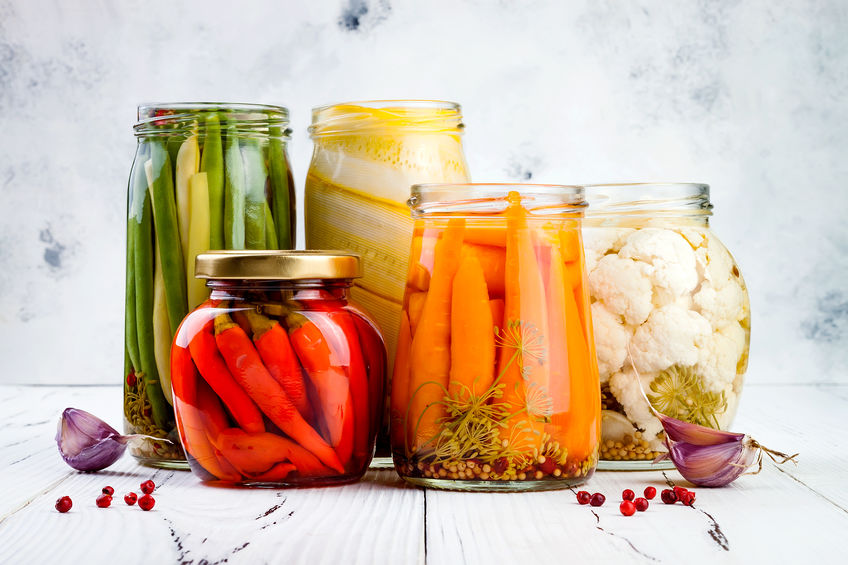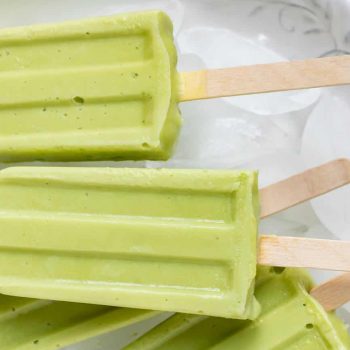Let’s face it, the gut is a hard sell. You can’t see it and you’ve probably never given it much thought. But it’s significance to our health and wellbeing are not to be ignored.
The trillions of microbes in your gut are not only essential to how you digest food, but they also provide vital enzymes and vitamins and control the calories you absorb, linking the health of the gut directly to weight issues.
Whether you want to lose weight or not, whether you’re one of the one in four people who struggles with a digestive issue, you can benefit from improving your gut health.
Good gut health has an impact on your digestion, your day-to-day comfort and energy levels, your immunity, mental well-being, and your risk of chronic disease.
What you eat and how you support your microbiome through diet, lifestyle, specialist foods, and supplements determine the outcome you’ll experience.
Fortunately, there are a plethora of foods that can significantly improve gut health. Today I want to focus specifically on fermented foods.
Fermentation has been around years. Years ago, and to this very day, fermenting foods gave our ancestors the ability to prolong the freshness of vegetables, grains, milk, and cheese. You can make a batch of fermented foods and it will last a long time.
They efficiently provide us with a dose of beneficial probiotic bacteria. These bacteria support overall health by improving things such as digestion, boosting immunity, helping treat gut issues such as IBS, killing harmful yeast, and microbes.
Below is a list of 10 must eat fermented foods to include in your diet:
1. SAUERKRAUT
Sauerkraut means “sour cabbage” in German, and is one of the oldest foods around.
It’s made from fermented green or red cabbage and is high in fibre, vitamin A, vitamin C, vitamin K, and B vitamins. It’s also a great source of iron, copper, calcium, sodium, manganese, and magnesium.
Traditionally made fermented sauerkraut needs to be refrigerated, and will clearly state on the label that it’s been fermented. Try to avoid the brands that pasteurise their Sauerkraut.
2. PICKLES
Gosh, this brings back memories being a child when salads were prepared for dinner. I remember the glass jars of pickled onions, cucumber, and beetroot on the table. Pickles have been around a long time!!!
Fermented pickles contain alot of vitamins and minerals, antioxidants, and gut-friendly probiotic bacteria. But again, make sure it clearly says fermented on the label.
A lot of store-bought pickles are made with vinegar and cucumbers. This is not fermented albeit it gives that sour taste. True fermented pickles are made with cucumbers and brine.
3. KOMBUCHA
I love Kombucha. I’ve mentioned it in past blogs as it’s excellent for gut health.
As a reminder, it’s a fermented sparkling drink made of black tea and sugar from various sources like cane sugar, fruit, or honey. It contains a colony of bacteria and yeast that initiates the fermentation process once combined with sugar. Word of warning though, read your labels again as certain brands add even more sugars which is not necessary!
You can easily buy Kombucha in Ocado, Waitrose, or health shops.
4. KEFIR
Kefir is a fermented milk product made from cow, goat, or sheep’s milk. It’s kind of like liquid drinkable yoghurt and is very rich in vitamin B12, calcium, magnesium, vitamin K2, biotin, folate, enzymes, and probiotics.
5. MISO
Traditionally Japanese, Miso is made by fermenting soybeans, barley, or brown rice with a type of fungus called Koji. It’s used in a host of recipes most notably to make miso soup.
6. YOGHURT
Probiotic yoghurt is a readily available fermented dairy product.
As you know, I’m not a huge fan of dairy. Fortunately, many of the dairy-free yoghurt alternatives are full of probiotics. My preference is you stick with these as much as possible.
If you can’t get hold of these and/or prefer a dairy yoghurt ideally lookout for these three things 1) it preferably comes from goat or sheep milk especially if you have trouble digesting cow’s milk 2) the animals have been grass-fed and 3) it’s organic.
7. TEMPEH
Another beneficial fermented food made with soybeans is tempeh. It’s made by combining soybeans with a tempeh starter which is a mix of live mold. After a few days fermenting, it becomes dense, and contains probiotics and also a decent amount of protein.
8. KIMCHI
I adore Kimchi. It’s a traditional fermented Korean dish made from vegetables such as cabbage, plus spices like ginger, garlic, and pepper. I know you can buy it in Waitrose.
9. SOURDOUGH
It’s easy to forget and overlook but traditionally made bread such as real sourdough are fermented. They don’t actually contain probiotics but the fermentation process helps make nutrients found in the grains more available for absorption and reduces antinutrient content that may make digestion difficult. However, like with anything containing gluten, keep consumption to a minimum and as a treat now and then.
10. APPLE CIDER VINEGAR
Apple cider vinegar that is raw and contains “the mother” is fermented and does contain probiotics. It also contains certain types of acids like acetic acid, which supports the function of probiotics and prebiotics in your gut. Again, make sure you check your labels and ensure the brand clearly states it contains “the mother”.
So that concludes my blog on 10 must eat fermented foods to include in your diet.
Over the forthcoming weeks, I’m going to share with you some really tasty fermented recipes and also simple ways you can incorporate fermented foods into your diet. Keep an eye on your inbox for these tips and ideas.
Love Gaynor x





